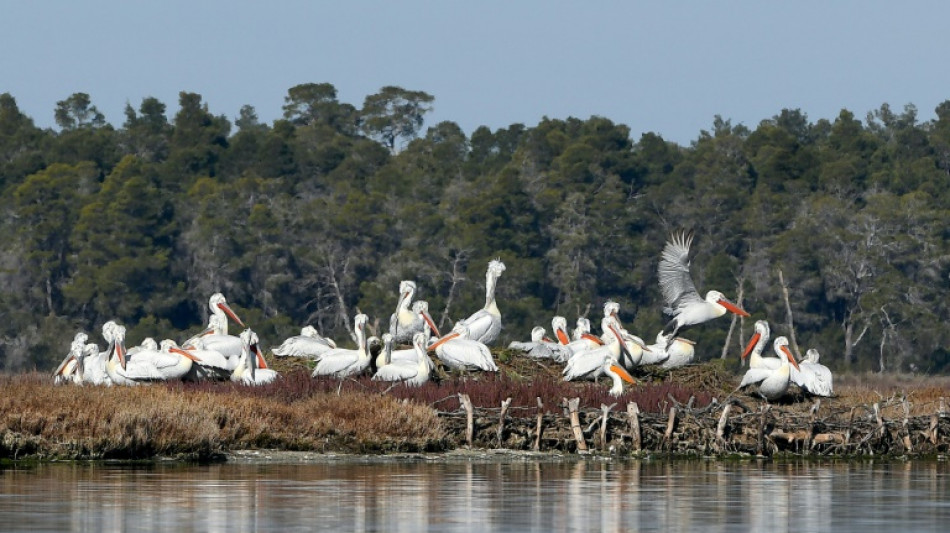
-
 Henman says Raducanu needs more physicality to rise up rankings
Henman says Raducanu needs more physicality to rise up rankings
-
France recall fit-again Jalibert to face Scotland

-
 Harry Styles fans head in one direction: to star's home village
Harry Styles fans head in one direction: to star's home village
-
Syrian jailed over stabbing at Berlin Holocaust memorial

-
 Second Iranian ship heading to Sri Lanka after submarine attack
Second Iranian ship heading to Sri Lanka after submarine attack
-
Middle East war spirals as Iran hits Kurds in Iraq

-
 Norris hungrier than ever to defend Formula One world title
Norris hungrier than ever to defend Formula One world title
-
Fatherhood, sleep, T20 World Cup final: Henry's whirlwind journey

-
 Conservative Nigerian city sees women drive rickshaw taxis
Conservative Nigerian city sees women drive rickshaw taxis
-
T20 World Cup hero Allen says New Zealand confidence high for final

-
 The silent struggle of an anti-war woman in Russia
The silent struggle of an anti-war woman in Russia
-
Iran hits Kurdish groups in Iraq as conflict widens

-
 China sets lowest growth target in decades as consumption lags
China sets lowest growth target in decades as consumption lags
-
Afghans rally against Pakistan and civilian casualties

-
 South Korea beat Philippines 3-0 to reach women's quarter-finals
South Korea beat Philippines 3-0 to reach women's quarter-finals
-
Mercedes' Russell not fazed by being tipped as pre-season favourite

-
 Australia beat Taiwan in World Baseball Classic opener
Australia beat Taiwan in World Baseball Classic opener
-
Underdogs Wales could hurt Irish after Scotland display: Popham

-
 Gilgeous-Alexander rules over Knicks again in Thunder win
Gilgeous-Alexander rules over Knicks again in Thunder win
-
Hamilton reveals sequel in the works to blockbuster 'F1: The Movie'

-
 Alonso, Stroll fear 'permanent nerve damage' from vibrating Aston Martin
Alonso, Stroll fear 'permanent nerve damage' from vibrating Aston Martin
-
China boosts military spending with eyes on US, Taiwan

-
 Seoul leads rebound across Asian stocks, oil extends gains
Seoul leads rebound across Asian stocks, oil extends gains
-
Tourism on hold as Middle East war casts uncertainty

-
 Bayern and Kane gambling with house money as Gladbach come to town
Bayern and Kane gambling with house money as Gladbach come to town
-
Turkey invests in foreign legion to deliver LA Olympics gold

-
 Galthie's France blessed with unprecedented talent: Saint-Andre
Galthie's France blessed with unprecedented talent: Saint-Andre
-
Voice coach to the stars says Aussie actors nail tricky accents

-
 Rahm rejection of DP World Tour deal 'a shame' - McIlroy
Rahm rejection of DP World Tour deal 'a shame' - McIlroy
-
Israel keeps up Lebanon strikes as ground forces advance

-
 China prioritises energy and diplomacy over Iran support
China prioritises energy and diplomacy over Iran support
-
Canada PM Carney says can't rule out military participation in Iran war

-
 Verstappen says new Red Bull car gave him 'goosebumps'
Verstappen says new Red Bull car gave him 'goosebumps'
-
Swiss to vote on creating giant 'climate fund'

-
 Israel, Iran launch fresh attacks as war spreads
Israel, Iran launch fresh attacks as war spreads
-
Google to open German centre for 'AI development'

-
 Winter Paralympics to start with icy blast as Ukraine lead ceremony boycott
Winter Paralympics to start with icy blast as Ukraine lead ceremony boycott
-
Sci-fi without AI: Oscar nominated 'Arco' director prefers human touch

-
 Ex-guerrillas battle low support in Colombia election
Ex-guerrillas battle low support in Colombia election
-
'She's coming back': Djokovic predicts Serena return

-
 Hamilton vows 'no holding back' in his 20th Formula One season
Hamilton vows 'no holding back' in his 20th Formula One season
-
Two-thirds of Cuba, including Havana, hit by blackout

-
 US sinks Iranian warship off Sri Lanka as war spreads
US sinks Iranian warship off Sri Lanka as war spreads
-
ReadyCode Launches ReadyM, a Creative Multiplayer Platform Bringing Community-Driven Gameplay to the World’s Most Beloved Single-Player Games

-
 Physical Gold IRA: IRA Gold Investment Guide Released for 2026
Physical Gold IRA: IRA Gold Investment Guide Released for 2026
-
InterContinental Hotels Group PLC Announces Transaction in Own Shares - March 05

-
 After oil, US moves to secure access to Venezuelan minerals
After oil, US moves to secure access to Venezuelan minerals
-
Arteta hits back at Brighton criticism after Arsenal boost title bid

-
 Carrick says 'defeat hurts' after first loss as Man Utd boss
Carrick says 'defeat hurts' after first loss as Man Utd boss
-
Ecuador expels Cuba envoy, rest of mission


Climate change fuels drop in Albania's migrant birds
Thousands of migratory birds have failed to make their annual visit to Albania's western coast this winter, experts say, pointing to climate change, overfishing and urbanisation as likely factors.
The number of waterbirds recorded in January 2022 in the Divjaka-Karavasta wetlands -- an internationally important wintering site along the European migratory flyway –- was 25 percent lower than at this time last year.
Western Albania recorded the drop during the annual International Waterbird Census, a three-day global event to monitor the migration patterns of waterfowl across the world. Several species are affected by the decline, according to Taulant Bino from the Albanian Ornithological Society.
"We discovered that some 9,000 waterbirds are missing from the Divjaka-Karavasta lagoons compared to last year," said Ardian Koci, head of the Divjaka-Karavasta National Park, where the protected wetlands are located.
Koci told AFP a total of 25,000 birds were counted in Divjaka-Karavasta -– one of the most important wetland ecosystems in the Mediterranean -- during the census on January 15-16, as compared to 34,000 in the survey a year earlier.
"The reasons are multiple but above all, it is global warming that has disrupted the migration and breeding seasons," Koci explained.
Nexhip Hysolokaj, a regional biodiversity expert, said scientists in Albania had tracked a rapid decline in migratory bird populations over the past three years.
- Disruptive weather patterns -
And while scientists say more research is needed to understand exactly how climate change is affecting birds, some point to the simple fact that ever-warmer weather means certain species no longer need to leave their northern breeding grounds when winter comes in order to find food further south.
"If there aren’t extreme temperatures in northern Europe, they prefer not to move, or they just migrate over shorter distances," said Mirjan Topi, the author of the first guide to Albania's birds.
In recent years, several species of migrating geese -- including the Greylag Goose, the White-fronted Goose and the rare Lesser White-fronted Goose, which breeds in the tundra of northern Russia and Scandinavia -- have largely failed to make their winter pilgrimage to Albania's marshes.
The western lagoons are also famous for their resident Greater Flamingos and Dalmatian Pelicans, which have a three-metre wingspan rivalling that of the albatross.
But experts say the breeding cycle of the iconic pelican -- whose fragmented populations are a concern for the long-term stability of the species -- is being disrupted by increasingly erratic weather patterns.
In 2021, the pelicans began breeding at the start of January. This year, the nesting season did not begin until the end of January -- a difference of several weeks -- after a winter that started exceptionally late.
"The pelican breeding season seems to be behind last year," Sajmir Hoxha, an expert in Albania for the French conservation group Noe, told AFP.
Meanwhile, illegal fishing has depleted vital food sources in Albania’s lagoons, and rapid urbanisation is threatening fragile ecosystems, especially in the network of marshes and sand dunes along the tourist magnet that is the Adriatic coast.
To add to the pressures, a sprawling international airport is set to be built near the protected marshlands of the Vjosa-Narta region, just south of Divjaka-Karavasta.
This 100-million-euro ($114-million) project, backed by a Turkish-Swiss consortium, "would directly affect wildlife and is a threat to species that breed there, winter there or stop over there on their way to Divjaka", Topi said.
O.M.Souza--AMWN